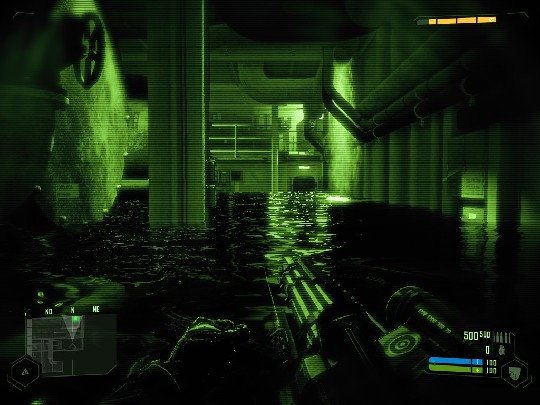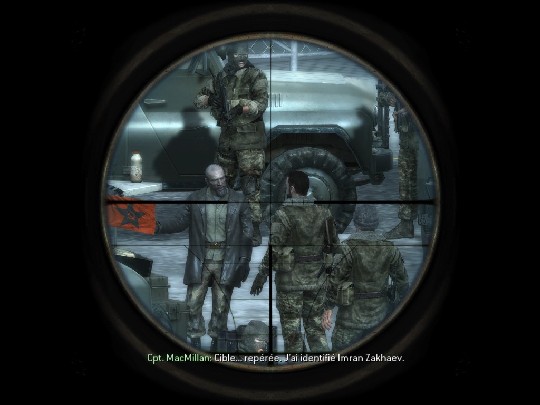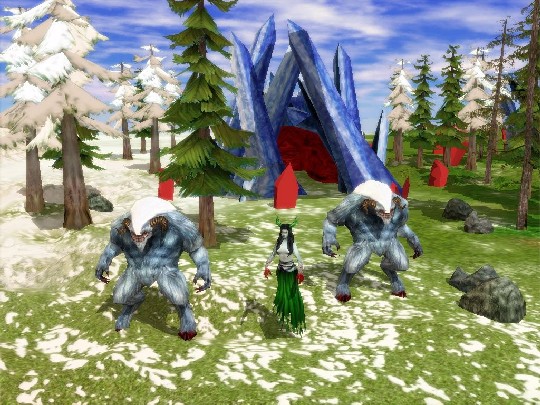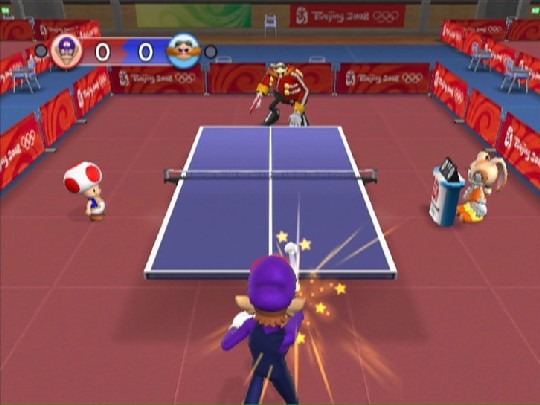|
CAN PIRACY SAVE THE
PC?
|
Stuart Campbell’s seen a lot of naked emperors in his
time. But that’s not important right now. TPCG charged
him to find the truth about the controversial current
state of the PC games market, and he came up with some
surprising answers. Why not join him and find out what
they were? Have you got a bus to catch or something? |
We hear a lot these
days about the death of the PC games market. Now, frankly the
uniquely terrible nature of statistics in the UK with regard to the
PC games market makes the proposition that the market is dying an
extremely difficult one to either confirm or refute. The most recent
published figures show that the PC takes around 15-20% of the UK
games market share by value (obviously things fluctuate from month
to month depending on what games have been released), comfortably
above the 360 and PS3 and only slightly behind the Nintendo DS. (The
Wii crushes everything in its path, and has resulted in everything
else having a smaller market share than in 2007, when the PC was
often in first place – in July of that year, for example, the PC
took 20.7% of the full-price market by value, ahead of the 360 with
17.8% and the DS’s 17.1%.)
|
“We feel the market for PC games is on a
downward spiral in terms of value generated in the UK
market.”
-
Dorian Bloch, Chart-Track, March 2008 |
What’s more, these
particular figures come from official UK chart compilers
Chart-Track, whose “Methodology” page states that their reports ”are
based on over-the-counter retail sales”, and therefore don’t
include download sales or things like subscriptions to MMOs, which
must both make up a huge proportion of the money spent on gaming.
(Steam, for example, has 15 million registered users.) On the other
hand, the PC charts are notorious for including non-games “leisure”
titles, with the likes of Norton Anti-Virus fluffing up the numbers,
so frankly the official UK sales stats (such as they are) are close
to worthless and get us nowhere.

Crytek hunt through the twilight underworld for
people with illegal copies of Crysis.
But for the sake of argument, let’s assume for now that if so many
people (Crytek, Epic, iD and others, slightly oddly even including
Chart-Track themselves) are saying the PC market is dying, then it
must be so. The question for PC gamers then becomes ”What can we
do to stop it?” After all, there’s a credit crunch on and we’re
all about to be thrown out of our homes, so just saying “Quick,
everyone buy twice as many games!” won’t cut it. Apart from
anything else, who can afford petrol to drive to the shops these
days? So we need a smarter solution.
The first step, of course, is to establish what’s causing this
failure. As you’ll see from the quotes scattered around the page,
many of the big PC developers blame it on piracy. This, it should go
without saying to anyone with an IQ in double figures, is an idiotic
paranoid fantasy. For one thing, nobody’s claiming the spectacularly
thriving DS market is dead, yet it’s by far the easiest current
format to pirate for, with countless easy-to-find direct-download
sites that don’t even need you to use a BitTorrent client, and the
easy availability plug-and-play flashcards that can hold hundreds of
pirated game ROMs costing around £25, less than the price of a
single game.
|
“We seem to lead the charts in piracy
by a large margin, a chart leading that is not desirable. I
believe it’s the core problem of PC gaming. To the
degree that PC gamers who pirate games inherently destroy
the platform.”
- Cevat
Yerli, President of Crytek, in PC Play, April 2008 |
And for another thing, absolutely NOBODY has the remotest idea how
much money is really “lost” to piracy (ie would have translated into
a genuine sale), and all the astronomical figures claiming otherwise
are simply made up off the top of someone’s head. (Though the
industry’s getting better at supporting the numbers with fake
science - the most recent trend is to count up the number of
downloaders on torrent sites, extrapolate that to all torrent sites,
and count each one as a lost sale, usually coming up with figures
around the 5:1 copies-to-sales ratio.)

Many pirates (watched here by elite ELSPA anti-
piracy
paratroops) are FILTHY FOREIGNS.
Actually, that’s not quite true ONE person knows what the
copies-to-lost-sales proportion might be. Russell Carroll, director
of casual-games company Reflexive, researched the matter more
extensively than anyone has ever done before, with regard to his
company’s successful Arkanoid clone Ricochet Infinity, which
recorded a massive 92% piracy rate - that is, for every 100 copies
they detected being played, only eight had been paid for, more than
11 pirate copies per legitimate sale.
|
“I find myself when I have a discussion
about piracy trying to convince people it's a serious
problem. Some estimates show that as much as 50% of game
sales are lost to piracy in the US. In Eastern Europe, Asia
and South America the losses are estimated to be 90% plus.”
- Todd
Hollenshead of iD, speaking at GDC 2007 |
So how much money were Reflexive losing to piracy? Without it, would
they have sold 12 times as many copies? Ten? Six? Even if just one
pirate out of 11 would otherwise have bought the game legitimately,
they’d have doubled their sales. We don’t have room here to detail
the full results of their various experiments, which can be found at
Reflexive's website, but the bottom line was this:
“As we believe that
we are decreasing the number of pirates downloading the game with
our DRM fixes, combining the increased sales number together with
the decreased downloads, we find 1 additional sale for every 1,000
less pirated downloads. Put another way, for every 1,000 pirated
copies we eliminated, we created 1 additional sale.”
–
Russell Carroll, Reflexive
One in a thousand, dear readers. By the ONLY even halfway-proper
research into the subject, what we find is that the total
elimination of videogame piracy, were it to be somehow possible
without ELSPA or the ESA simply sending burly men round to smash
your PC (and let’s not rule that out as a possibility, the way
they’re going), would actually increase sales not by the industry’s
strident claims of 100% or 500% or 900%, but by the whopping margin
of 0.1%. That’s a rate of loss roughly comparable to the
amount of your money that you lose down the back of the sofa in
loose change every year. 0.1%? It’s no wonder most publishers and
industry bodies just make the figures up off the top of their heads,
while they frantically infest your PC with crippling DRM and spyware
and lobby the government to pass laws making it an imprisonable
offence to even watch someone else playing a game you haven’t paid
for.

Seriously, how many more of these do you need?
But if it’s not piracy that’s allegedly killing the PC (and it
isn’t), what is it? The industry sticks like glue to the “IT’S
ALL PIRACY!” line, and as a result there are few alternative
explanations offered. But in this reporter’s view (as alert readers
of my popular and insightful column in the pages of this very mag
will already know), the only logically-feasible culprit is the one
that few either in the industry or the audience want to confront,
and it’s the same disease that has a track record of victims
trailing all the way back to the Atari VCS – a stagnant, rotting
software pool.
Vastly more than any other format, the breadth of game genres in the
PC mainstream is chokingly constricted. (Yes, there’s plenty of
variety available in the casual and freeware markets, but what we’re
talking about is boxed retail product that you can buy in GAME,
which is what makes up the charts.) Browse the shelves of your local
software boutique and you’ll find the PC represented by a
stultifyingly conservative selection of game types that hasn’t
changed in a decade, and is increasingly unfashionable in an era
that’s alive with a broader canvas of gaming than at any time since
the very earliest days of arcades.
|
“Consoles are definitely stealing a lot of
hardcore gamers from the PC. The sales of the console
versions are something like ten times the sales of the PC
versions.”
-
Mark Rein of Epic, interviewed in The Guardian, January 2008 |
High Street, mainstream-accessible, media-covered console gaming
stretches all the way from GTA IV to Brain Training to Space Giraffe
to Call Of Duty 4 to Mario And Sonic At The Olympics to Ridge Racer
7 to Wii Fit to Guitar Hero to Gran Turismo 5 and all points in
between. But scan the PC section and it goes “space war –
dungeons and dragons – space war – dungeons and dragons – World War
2 FPS – space war – highly technical simulation - space war –
dungeons and dragons – World War 2 FPS - space war”. PC gamers
are stuck in a rut, grinding it ever deeper as they shuttle back and
forth over the same few well-worn tracks, and eventually they’re
going to get so deep that the trench collapses over their heads and
buries them.

On the Wii, fun casual titles like Carnival Funfair
Games are sold to High Street customers along with the likes of
Super Mario Galaxy rather than being a sneered-at niche, and they do
amazingly well as a result. In fact, CFG reached No.2 in the charts,
and stayed in the top 10 for many weeks.
So what’s the solution? How do we save PC gaming? Well, sit down and
hold onto your hats, because the answer might just be “piracy”. Who
knew?
Here’s what I* want you to do, viewers. We’re going to conduct a
little experiment. For the next three months, take the money you
were going to spend on PC games and put it to one side. Then each
month, instead of just going out and buying whichever World War 2
FPS or goblin-slashing sub-Tolkien fantasy grindfest you were going
to buy and pour endless hours of levelling-up into, spend the time
instead by downloading pirate copies, along with copies of a whole
bunch of games you wouldn’t normally have considered. Try puzzle
games, fun kart racers, 2D and 3D platformers, sports games that
aren’t by EA, scrolling shoot-‘em-ups, fighting games, rhythm-actioners,
anything. Don’t rely on crappy unrepresentative demos, play the
whole game.
Then, at the end of each month – and this bit’s terribly important –
spend every last penny of the money that you set aside, but spend
it on the thing you enjoyed the most, not just the thing that
got the most hype. That’s it. Nothing more complicated. Just try
before you buy.

Next month, why not take a no-risk trial of a game
that looks like this?
You might like it.
It’s a no-lose scenario. Either you’ll find that when you broaden
your horizons a bit, freed from the constraints of having to lay out
cash in advance, you end up revitalising your gaming with a much
more colourful rainbow of experiences, spreading money more evenly
and widely around the industry and resulting in a far more varied
and vibrant market. Or you’ll confirm your prejudices, discover that
what you really like IS the same old genre pieces as before, and
thus be comforted by the knowledge that if and when the PC games
market does die, you’ll have nobody but yourself to blame. (Taking
responsibility for your own fate, after all, is far healthier for
the mind than impotently raging at a shadowy and nebulous outside
force that you can’t control.)
|
“Entertainment software piracy is estimated
to cost the U.S. entertainment software industry billions of
dollars every year.”
-
Entertainment Software Association
website |
Have you got the guts to take a walk on the wild side, chums? Can
you cast off your chains of fear, throw away your blinkers of
prejudice, toss aside your straitjacket of servitude and open your
heart to everything the PC has to offer? Or are you just dumb,
unthinking slaves of whoever’s got the biggest marketing budget and
the most intimidating propaganda? Why don’t you find out for
yourself?

The PC development community burning to the ground,
yesterday.
* The opinions expressed by Stuart Campbell are his own personal
views which in no way reflect the feelings or
policies of Total PC Gaming or Imagine Publishing and oh my God are
we really letting him say this? – A. Lawyer
|

